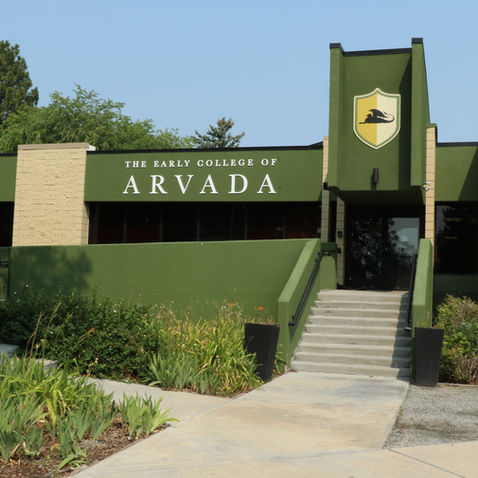
Water Rate Increases Take Center Stage at Arvada City Council Meeting
4
170
0
Arvada residents should brace themselves for substantial utility rate increases next year, as the City Council devoted much of Tuesday's meeting to discussing the 2026 water, wastewater, and stormwater rates. The May 13th workshop revealed troubling plans for significant rate adjustments needed to address aging infrastructure and fund critical water treatment projects that have been consistently deferred despite years of previous rate hikes.
Meeting Highlights
The workshop, led by Jacqueline Rhodes and the utility management team, featured a 24-slide presentation detailing Arvada's utility systems and the financial strategies the city claims are required to maintain them. The presentation highlighted infrastructure dating back to the 1960s and 1980s that requires modernization, including plans for a new water and wastewater treatment plant.
The most concerning figure presented was a projected 11.29% water rate increase for 2026. This substantial increase would follow several years of similar increases – 10% in 2022, 12.3% in 2023, and another 12% in 2024. Despite these repeated rate hikes, the city still claims to need more resident money to cover debts from completed water infrastructure projects and finance the construction of the new water treatment plant.
City staff presented various funding approaches, primarily focused on extracting more money from residents rather than reconsidering the city's spending priorities:
Rate adjustments that place financial burdens on households
Bond financing for major projects, creating more long-term debt
Exploring new funding avenues like congressionally directed spending
Council members expressed perfunctory concerns about the impact of these increases on residents, particularly those with fixed incomes. However, these expressions of concern stand in stark contrast to the council's actions, which consistently prioritize development projects over essential infrastructure maintenance.
During the discussion, Shawna Ambrose suggested that Arvada's sales tax rate—0.5% lower than surrounding areas—has contributed to the city's inability to complete necessary infrastructure updates. This deflection fails to address the real issue: the city's questionable spending priorities rather than insufficient revenue.
Finally, the council also expressed gratitude toward Linda Haley's service as interim city manager and discussed the upcoming leadership transition to Don Wick as City Manager.
Questions About Spending Priorities
As Arvada faces critical decisions about water infrastructure funding, it's worth examining the city's broader spending priorities and financial management history. In October 2024, the city approved rate increases of water fees by 10%, wastewater fees by 14.5%, and stormwater fees by 13.75%. These increases followed several years of steady hikes, with a 12.3% increase in 2023 and another 12% increase in 2024. Despite extracting significantly more money from residents each year, the city remains in a position of debt requiring further rate increases in 2026 to cover costs of critical infrastructure improvements – improvements that should have been prioritized years ago.
While the council discusses significant utility rate increases for residents in 2026, the city has recently committed approximately $9.1 million toward properties like the Early College of Arvada and the 51st/Marshall site; both sites that continue to be vacant. This raises important questions about municipal priorities: If we're struggling to complete critical infrastructure upgrades, should these property acquisitions take precedence over ensuring access to clean and reliable water?
The pattern of prioritizing property acquisitions and development projects over infrastructure maintenance isn't new to Arvada. When Shawna Ambrose suggested that Arvada's lower sales tax rate is the reason for infrastructure funding shortfalls, she failed to address what appears to be a recurring issue with fund allocation rather than revenue generation. For example, in 2023, the city approved the Olde Town Strategic Reinvestment Plan, with 13 projects to occur before 2026, while deferring infrastructure replacements.
The presentation's emphasis on rate increases as the primary solution sidesteps the more difficult conversation about reprioritizing existing resources. The proposed 11.29% increase would place the financial burden squarely on residents rather than requiring the city to reevaluate its spending habits and project priorities.
Moving Forward
The meeting concluded with plans for additional workshops scheduled for July, August, and September 2025. These sessions promise deeper discussions about rates, project funding, and strategies moving forward, but provide little assurance that spending priorities will be reconsidered.
What This Really Means for Residents
For Arvada residents, these discussions signal not just potential increases in utility bills starting in 2026, but a continuation of a troubling pattern where basic infrastructure needs are deferred while other development projects take precedence.
The upcoming summer workshops will be critical for ensuring transparency in how funds are allocated and managed. Residents deserve clear answers about why basic infrastructure maintenance continues to take a backseat to property acquisitions and development projects, especially when those basic services are becoming increasingly expensive for households already facing economic pressures.
While the exact rate increases haven't been finalized, the council's discussions indicate they're moving forward with substantial rate hikes without seriously reconsidering spending priorities. Residents interested in learning more or providing input should watch for announcements about the upcoming summer workshops and demand accountability for how their money is being spent. Arvada Voices is committed to keeping our community informed about city government decisions that affect your daily life. Have thoughts about the proposed water rate increases and the city's spending priorities? Share them in the comments below or attend the upcoming workshops to make your voice heard!


